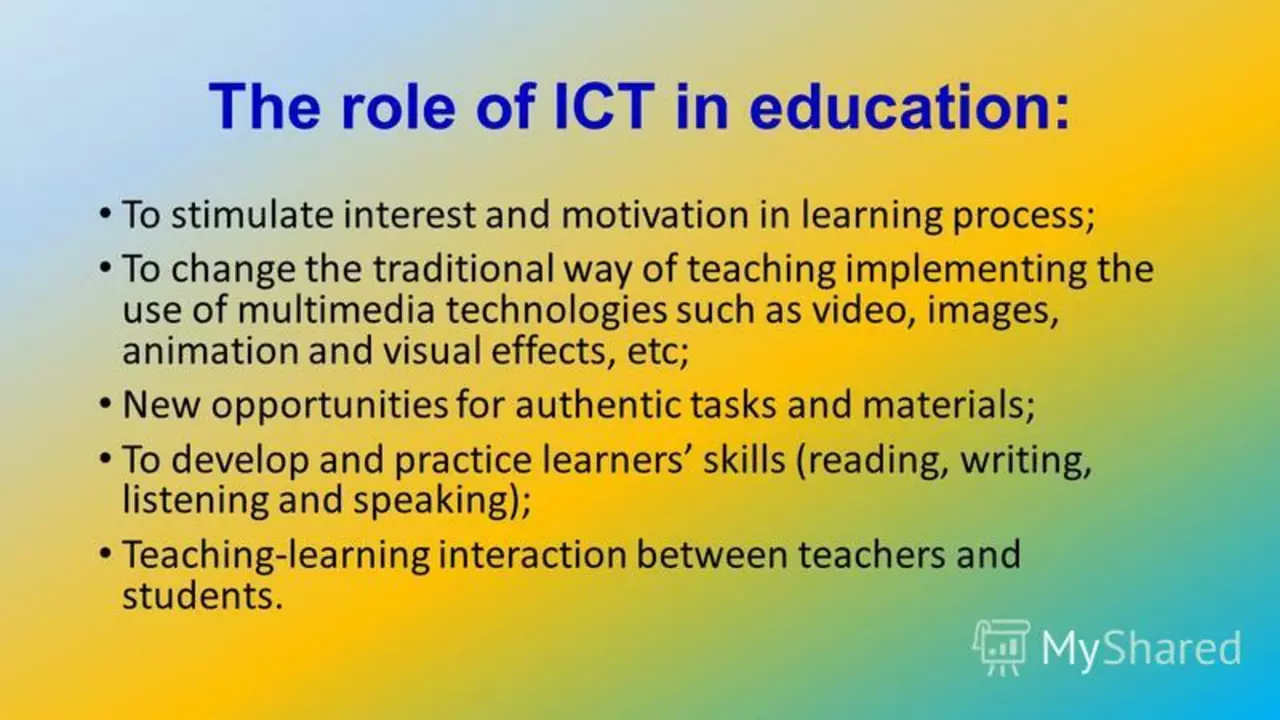
Understanding the Fundamental Role of Language in Education
Language is the primary medium through which we communicate and express our thoughts, ideas, and emotions. It's like the "software" that runs our brains, allowing us to understand and interpret the world around us. In the context of teaching and learning, language takes on an even more vital role. It is through language that teachers convey knowledge and students acquire it. Without language, the process of teaching and learning would be like trying to run a computer without an operating system. It simply wouldn’t work.
The importance of language in education is not just about the transfer of knowledge, but also about the development of cognitive skills. Learning a language, whether it's the mother tongue or a second language, helps in the development of cognitive abilities such as problem-solving, critical thinking, and creative thinking. These are skills that are not only necessary for academic success, but also for success in life.
Language: A Tool for Communication in the Classroom
When you think about a classroom setting, one of the first things that probably comes to mind is the image of a teacher standing in front of the class, imparting knowledge. But teaching is not just about transmitting information; it's about facilitating understanding. And for that, effective communication is key. This is where the importance of language comes in. Without a common language, teachers and students would be unable to interact, discuss, ask questions, or offer explanations.
Language is also a tool for promoting participation and engagement in the classroom. Through language, students can express their thoughts and opinions, participate in group discussions, ask questions, and provide feedback. This not only makes the learning process more interactive and engaging, but also promotes critical thinking and problem-solving skills.
Nurturing Cultural Understanding and Diversity through Language
Language is not just a tool for communication; it's also a reflection of culture. Each language carries with it the values, beliefs, and traditions of the people who speak it. By learning different languages, students can gain insights into different cultures, fostering a sense of respect and appreciation for cultural diversity. This is particularly important in today's globalized world, where understanding and respecting cultural differences is key to promoting peace and harmony.
In addition, learning different languages can also open up new opportunities for students. It can enhance their job prospects, broaden their horizons, and equip them with the skills needed to succeed in a multicultural, multilingual world.
Language and Cognitive Development
Language plays a crucial role in cognitive development. It is through language that children learn to think, solve problems, and make sense of the world. Research has shown that the development of language skills can have a significant impact on a child's cognitive development and academic performance. Children who have strong language skills tend to perform better in school, have higher self-esteem, and are more likely to succeed in their future careers.
Moreover, learning a second language can enhance cognitive abilities even further. It can improve memory, attention, and problem-solving skills, and can even delay the onset of cognitive decline in later life.
Language as a Foundation for Literacy Skills
Language is the foundation upon which literacy skills are built. Without language, it would be impossible to read, write, or understand written text. Developing strong language skills from an early age can therefore set the stage for the development of strong literacy skills later on. This is important, as literacy skills are not only key to academic success, but also to functioning effectively in society.
Furthermore, strong language skills can facilitate the learning of other subjects. For example, a good understanding of language can make it easier to learn subjects such as history, geography, and science. This is because these subjects often require the ability to read and understand complex texts, to write clearly and effectively, and to communicate ideas and arguments.